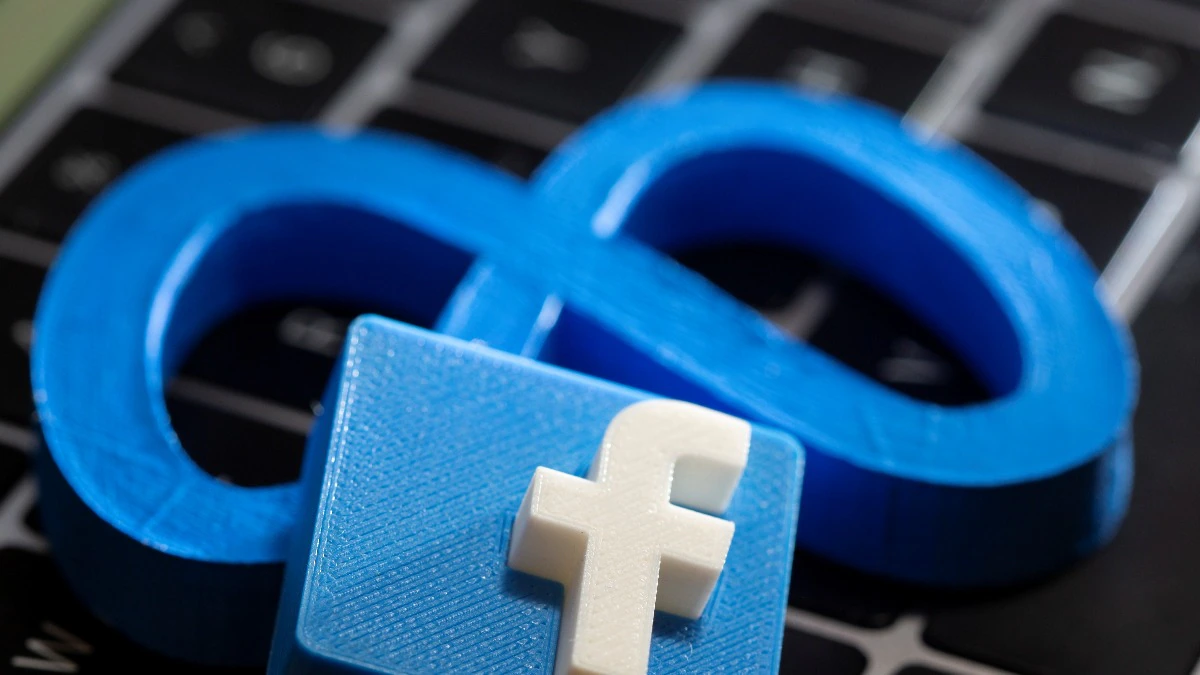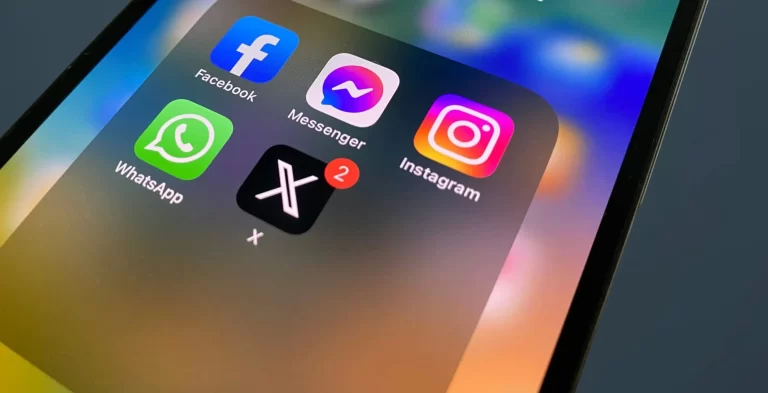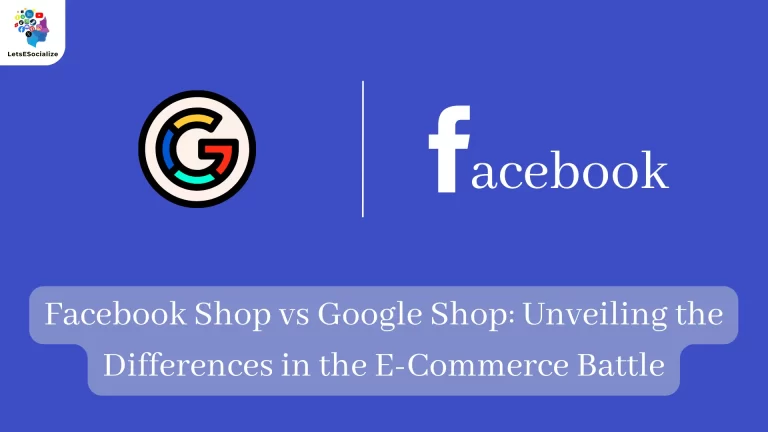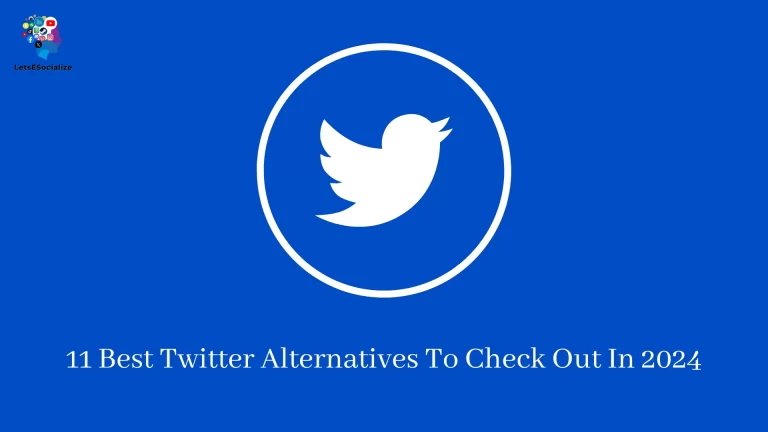On Tuesday, March 5th, 2024, a technical issue caused Messenger, Threads, Facebook, and Instagram Back Online After Hour-Long Outage, all owned by Meta. This meant that millions of users around the world were unable to access the platforms for over an hour.
Table of Contents
Here’s a summary of what happened:
- Start of the outage: The outage began around 5:45 PM IST (11:15 AM GMT) on Tuesday, March 5th, 2024.
- Affected platforms: Users of Facebook, Instagram, Messenger, and Threads were affected.
- Symptoms: Users experienced various issues, including:
- Inability to log in or refresh their feeds.
- Seeing error messages.
- Being unable to send or receive messages.
- Reported cause: Meta stated that the outage was caused by a technical issue, though the specific details haven’t been publicly disclosed.
- Duration: The outage lasted for over an hour before services were gradually restored.
- Impact: Millions of users were affected globally, impacting communication, news consumption, and business operations for those relying on the platforms.
It’s important to note that information about the specific cause and technical details of the outage might still be emerging. It’s recommended to rely on official sources from Meta or credible news outlets for the latest updates.
What was the impact of the outage?
The Facebook, Instagram, and WhatsApp outage on March 5th, 2024, had a widespread impact across various aspects of daily life, including:

Individual Users:
- Disrupted communication: Millions of users worldwide rely on these platforms for personal communication, and the outage hindered their ability to connect with friends, family, and colleagues.
- Limited access to information: Many users depend on these platforms for news consumption and updates on current events. The outage disrupted their access to information and created a temporary information gap.
- Inconvenience and frustration: The unexpected outage caused inconvenience and frustration for users who rely on these platforms for various personal and professional purposes.
Businesses:
- Disrupted operations: Businesses that use these platforms for marketing, customer service, or sales faced disruptions to their operations during the outage.
- Financial losses: Some businesses, particularly those heavily reliant on social media advertising and marketing, might have experienced temporary financial losses due to the outage.
- Reputational impact: The outage could potentially impact the reputation of businesses that rely heavily on these platforms for customer engagement and communication.
Social and Economic Impact:
- Hindered communication and collaboration: The outage disrupted communication and collaboration within online communities and groups that rely on these platforms to function.
- Disrupted online activities: Many online activities, such as online events, fundraising efforts, and even service bookings, might have been impacted by the outage.
- Highlighting dependence on social media: The outage served as a reminder of society’s growing dependence on social media platforms and the potential disruptions they can cause.
Overall, the Facebook, Instagram, and WhatsApp outages showcased the widespread influence and integration of these platforms into various aspects of daily life. The impact ranged from individual inconveniences to disruptions in business operations and social interactions, highlighting the potential consequences of large-scale technical issues in today’s interconnected world.
It’s important to note that the full extent of the outage’s impact is still being assessed, and the information provided here is based on current reports and potential consequences.
Also Read – Former Twitter CEO Parag Agrawal 3 Other Employees Sue Elon Musk for $128 Million
Also Read – The Ultimate Guide to Google My Business Directory: Boost Your Online Presence
What were the potential causes of the outage?
While the exact cause of the Facebook, Instagram, and WhatsApp outage on March 5th, 2024, remains undisclosed by Meta, several potential explanations have been circulating based on expert analysis and industry trends:
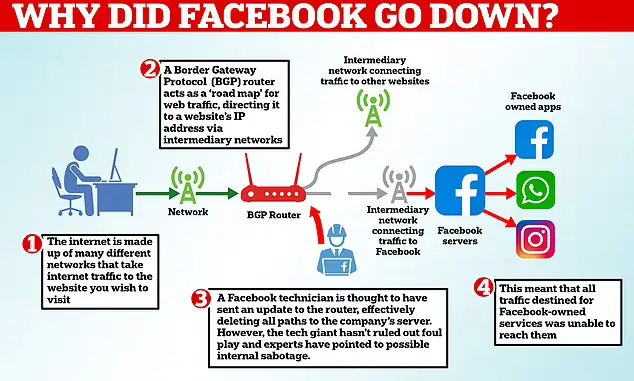
1. Technical Issue with Internal Routing: This possibility suggests a problem within Meta’s internal network infrastructure responsible for directing traffic between its data centers and users. This could be caused by hardware or software malfunctions, configuration errors, or cyberattacks targeting their internal systems.
2. Software Bug: A bug introduced during a recent software update or maintenance could have triggered the outage. Software bugs, even in rigorously tested systems, can sometimes have unforeseen consequences, especially when dealing with complex and large-scale software infrastructures like those powering Meta’s platforms.
3. Domain Name System (DNS) Issue: The DNS translates website names (like “facebook.com”) into IP addresses (numerical codes) that computers understand. An issue with the DNS configuration or routing could have prevented users from accessing the platforms by making them unable to locate the correct servers.
4. Hardware Failure: While less likely, the outage could be attributed to a hardware failure within one or more of Meta’s data centers. This could involve issues with servers, routers, or other critical hardware components responsible for running the platforms.
5. Cyberattack: Although Meta hasn’t indicated any evidence of a cyberattack, it remains a possibility. Sophisticated cyberattacks can disrupt network infrastructure and cause widespread outages. However, it’s important to note that attributing the outage solely to a cyberattack without official confirmation from Meta could be misleading.
It’s crucial to remember that these are just potential explanations based on available information and expert speculation. Meta, the sole entity with definitive knowledge of the cause, hasn’t provided a detailed technical explanation yet.
As the situation evolves and more information becomes available, a clearer picture of the outage’s cause might emerge. It’s recommended to rely on official updates from Meta or credible news sources for the latest information.
How did users react to the outage?
The Facebook, Instagram, and WhatsApp outage on March 5th, 2024, sparked a range of reactions from users, showcasing the diverse ways people rely on these platforms and the potential disruptions caused by their temporary unavailability. Here’s a glimpse into how users reacted:
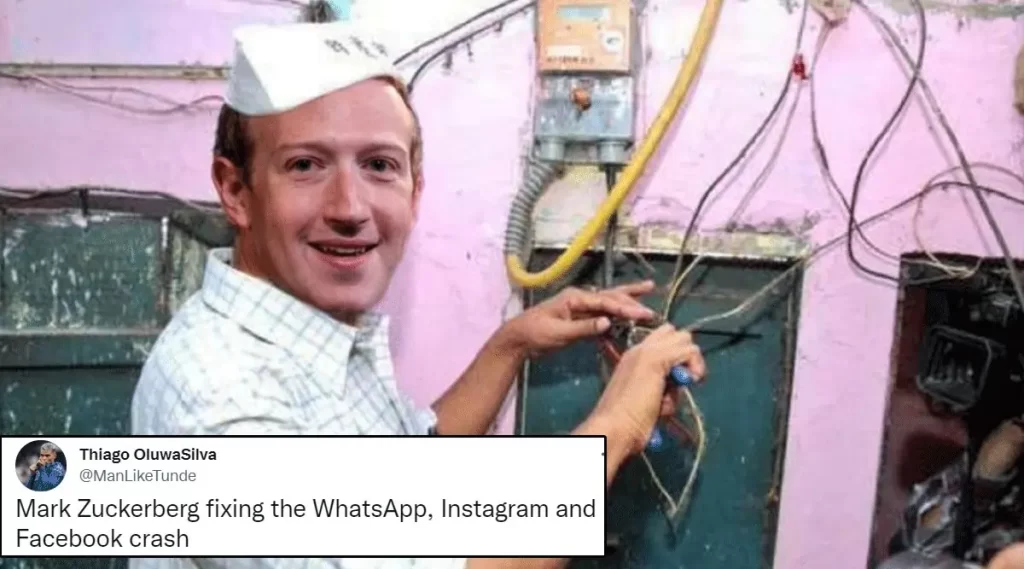
Confusion and Frustration:
- Many users, accustomed to the constant availability of these platforms, expressed confusion and frustration when they encountered the outage.
- The sudden disruption to their usual communication channels and information access led to a sense of inconvenience and annoyance.
Humor and Memes:
- Social media users, known for their creativity, resorted to humor to cope with the situation.
- Jokes, memes, and humorous observations about the outage flooded Twitter, a platform that remained operational during the Facebook and Instagram outage.
Highlighting Dependence:
- The outage served as a wake-up call for many, highlighting their dependence on these platforms for various aspects of daily life.
- Users shared their experiences and expressed concerns about the potential consequences of relying heavily on a few dominant platforms.
Shifting to Alternative Platforms:
- Many users turned to alternative platforms like Twitter, Telegram, and Signal to stay connected and informed during the outage.
- This temporary shift showcased the presence of alternative platforms and the potential for users to adapt to disruptions.
Criticism of Meta:
- Some users criticized Meta for lacking transparency and communication during the outage.
- Concerns were raised about the potential for similar outages in the future and the need for more robust contingency plans.
Overall, the user reactions to the Facebook, Instagram, and WhatsApp outages reflected the diverse ways these platforms are integrated into daily life. The outage served as a reminder of both the convenience and potential drawbacks of relying heavily on a few dominant social media platforms.
It’s important to note that these reactions represent a general overview based on social media trends and news reports. Individual user experiences and perspectives might vary significantly.
How did the companies respond?
In the aftermath of the Facebook, Instagram, and WhatsApp outage on March 5th, 2024, the companies’ responses primarily focused on:
Acknowledging the Outage and Apologizing:

- Meta, the parent company of Facebook and Instagram, took to Twitter (which remained operational during the outage) to acknowledge the issue and apologize for the inconvenience caused to users.
- Andy Stone, Meta’s Communications Director, stated that the company was aware people were having trouble accessing their services and they were working on the issue.
- No specific details about the cause of the outage were disclosed in the initial communication.
Providing Updates and Working on Resolution:
- Meta focused on internal efforts to identify and resolve the technical issue causing the outage.
- While details are limited, engineers were likely working to diagnose the problem, implement solutions, and restore services as quickly as possible.
Limited Public Communication:
- Beyond the initial acknowledgment, Meta offered limited public communication during the outage. This approach, while common during ongoing technical incidents, can sometimes lead to user frustration due to a lack of transparency.
Restoration of Services:
- After over an hour, Meta announced that they had resolved the issue and services were gradually being restored.
- This was followed by another statement from Andy Stone thanking users for their patience.
Overall, the companies’ response focused on acknowledging the outage, apologizing for the inconvenience, and working to resolve the issue as quickly as possible. While the limited public communication might have caused some user frustration, the focus remained on internal efforts to restore services.
It’s important to note that the information provided here is based on publicly available reports and social media interactions. Meta might release further details or clarifications about the outage and their response in the future.
What measures can be taken to prevent future outages?
Preventing complex technical outages like the one experienced by Facebook, Instagram, and WhatsApp on March 5th, 2024, is challenging, but several measures can be taken to improve system resilience and minimize the risk of future occurrences:

Technical Measures:
- Strengthening infrastructure: Continuously investing in upgrading and maintaining hardware and software infrastructure to handle potential fluctuations in traffic and prevent equipment failures.
- Redundancy and failover mechanisms: Implementing redundant systems and failover mechanisms that automatically reroute traffic or switch to backup systems in case of a primary system failure.
- Regular testing and simulations: Conduct regular penetration testing, vulnerability assessments, and simulating potential outage scenarios to identify weaknesses and test the effectiveness of response plans.
- Investing in automation: Automating routine tasks and deploying AI-powered tools for anomaly detection and proactive issue mitigation to identify and address potential problems before they escalate.
- Cybersecurity measures: Implementing robust cybersecurity measures to protect against cyberattacks that could disrupt operations. This includes regularly updating software, having strong password policies, and educating employees about cyber hygiene practices.
Organizational Measures:
- Clear communication plans: Establishing clear communication plans to keep users informed during outages, providing timely updates, and managing expectations effectively.
- Transparency and accountability: Fostering a culture of transparency and accountability within the organization, encouraging open communication about incidents and lessons learned from past outages.
- Investing in training and expertise: Continuously training staff on incident response procedures, best practices for system maintenance, and effective communication during disruptions.
- Collaboration and learning from others: Encouraging collaboration within the industry and learning from the experiences of other companies that have faced similar outages.
It’s important to note that implementing these measures requires significant investment, ongoing effort, and continuous improvement. Additionally, the effectiveness of these measures can vary depending on the specific nature and causes of potential outages.
While eliminating the possibility of outages might not be feasible, implementing a combination of technical and organizational measures can significantly improve system resilience, minimize the frequency and duration of outages, and ensure a more effective response when they do occur.
The role of social media in modern life
Social media has become an undeniable force in modern life, profoundly impacting the way we connect, consume information, and even shape our identities. Here’s a comprehensive exploration of its multifaceted role:

Connection and Communication:
- Social media bridges physical distances: It allows us to connect with friends, family, and acquaintances regardless of location, fostering closer relationships and a sense of community.
- Platforms for self-expression: Individuals can share their thoughts, experiences, and creativity with a wider audience, fostering self-expression and building online communities around shared interests.
- Communication channels for organizations: Businesses, institutions, and individuals can utilize social media for communication, marketing, and customer service, reaching a broader audience and fostering engagement.
Information Consumption and News Sharing:
- News dissemination: Social media platforms have become significant sources of news and information, offering real-time updates and diverse perspectives.
- User-generated content: Individuals can share information and perspectives directly, influencing public opinion and creating a more dynamic media landscape.
- Concerns about information quality: The spread of misinformation and “fake news” on social media platforms is a growing concern, highlighting the need for critical thinking and media literacy.
Impact on Individuals and Society:
- Identity formation: Social media can influence how individuals perceive themselves and present themselves to the world, impacting self-esteem and social comparison.
- Social movements and activism: Social media has become a powerful tool for raising awareness, mobilizing people around causes, and organizing social movements.
- Mental health concerns: Excessive social media use can be linked to anxiety, depression, and feelings of inadequacy, highlighting the importance of responsible use and maintaining a healthy online presence.
Economic Impact:
- Growth of the digital economy: Social media has fueled the growth of the digital economy through advertising, e-commerce, and the creation of new online professions.
- Marketing and advertising: Businesses leverage social media platforms to reach target audiences, promote products and services, and build brand awareness.
- Concerns about data privacy and security: The collection and use of user data by social media companies raise concerns about privacy and security, necessitating strong regulations and user awareness.
Overall, the role of social media in modern life is multifaceted and complex. While it offers numerous benefits for connection, communication, and information sharing, it also presents challenges related to misinformation, mental health, and data privacy. Navigating the opportunities and challenges of social media requires critical thinking, responsible use, and a healthy balance between online and offline interactions.
It’s important to remember that this is a brief overview, and the specific impacts of social media vary based on individual usage patterns, cultural contexts, and evolving technological advancements.
Alternatives and diversification
The Facebook, Instagram, and WhatsApp outage on March 5th, 2024, highlighted the potential dangers of over-reliance on a few dominant social media platforms. Here’s how users and society as a whole can consider alternatives and diversification:
For Users:
- Exploring Alternatives:
- Messaging Apps: Signal, Telegram, and Viber offer secure and encrypted messaging options.
- Social Networks: Platforms like Diaspora, Mastodon, and Reddit cater to specific interests and foster a different user experience compared to Facebook and Instagram.
- News Aggregation Apps: Services like Apple News or Google News can be used to stay informed without relying solely on social media for news consumption.
- Microblogging: Platforms like Twitter can be used for shorter updates and real-time communication during outages.
- Diversifying Information Sources:
- News Websites: Reputable news websites and online publications can offer in-depth reporting and a wider range of perspectives compared to social media feeds.
- Blogs and Podcasts: Independent content creators can provide valuable insights and diverse viewpoints on various topics.
- Email Newsletters: Subscribing to email newsletters from trusted sources can ensure a steady flow of curated information directly to your inbox.
For Society:
- Promoting Open Communication Protocols: Encouraging the development of open standards and protocols for online communication could reduce reliance on a few large companies and allow for more interoperable platforms.
- Supporting Decentralized Social Media: Exploring and supporting decentralized social media initiatives that give users more control over their data and privacy.
- Focus on Digital Literacy: Enhancing educational programs to equip individuals with the skills to critically evaluate online information, identify reliable sources, and navigate the digital landscape effectively.
Overall, the recent outage emphasizes the importance of fostering a more diverse and decentralized online ecosystem. By exploring alternatives, diversifying information sources, and promoting open communication protocols, users and society can build resilience against future outages and empower themselves to navigate the online world more critically and consciously.
The Impact on Users and Businesses
The outage highlighted the significant role that social media platforms play in our daily lives. For many individuals, Facebook and Instagram are essential tools for staying connected with friends and family, sharing important updates, and engaging with communities. The disruption reminded us of our reliance on these platforms and the potential consequences when they become unavailable.

Businesses, too, felt the impact of the outage. Social media has become a crucial component of modern marketing strategies, with companies leveraging platforms like Facebook and Instagram to reach their target audiences, promote products and services, and engage with customers. The downtime meant lost opportunities for businesses to connect with potential customers and maintain their online presence.
Content creators and influencers, who rely heavily on platforms like Instagram and YouTube for their livelihoods, also experienced challenges. Unable to post new content or engage with their audiences, many sought alternative channels to maintain their online presence and communicate with their followers.
Potential Causes and Company Responses
While the exact cause of the outage remains unclear, speculations range from technical glitches or server issues to potential cyber-attacks or security breaches. However, it is important to note that such widespread outages are not uncommon, even for large tech companies with robust infrastructure and security measures in place.
Throughout the outage, the companies involved worked diligently to resolve the issue and restore services. Facebook and Instagram acknowledged the disruption on their respective platforms, providing updates and assuring users that they were working to address the problem. YouTube, on the other hand, remained relatively quiet, with no official statement regarding the sign-in issues experienced by some users.
As services gradually resumed, the companies offered apologies and explanations to their users, emphasizing their commitment to providing reliable and uninterrupted services.
Lessons Learned and Future Outlook
The outage served as a reminder of the importance of communication and connectivity in our modern world. It highlighted the need for businesses and individuals to have contingency plans and the importance of not relying solely on a few platforms for all communication and marketing efforts.

Moving forward, users and businesses alike may seek to diversify their communication channels and explore alternative platforms to mitigate the risk of a single point of failure. Additionally, calls for increased transparency, accountability, and user control over data and privacy are likely to grow, as concerns around data breaches and security vulnerabilities continue to surface.
The outage also reignited discussions around the role of social media in our lives and the potential need for regulation or decentralized solutions. As our reliance on these platforms continues to grow, it is crucial to strike a balance between the benefits they provide and the potential risks and consequences associated with their widespread adoption.
In the coming days and weeks, tech companies will likely reevaluate their infrastructure, security measures, and disaster recovery plans to minimize the chances of similar outages occurring in the future. User expectations and demands may also evolve, with a greater emphasis on reliability, transparency, and accountability from the companies behind these essential platforms.
Also Read – 10 Proven Strategies to Boost Your LinkedIn Profile Visibility
Also Read – The Complete Guide to Selling Digital Products on Google Shopping
Conclusion
The hour-long outage of Facebook, Instagram, and YouTube’s sign-in issues served as a wake-up call, reminding us of our reliance on social media platforms and the potential consequences of their disruption. While the impact was temporary, it highlighted the need for contingency plans, diversification of communication channels, and ongoing discussions around data security, privacy, and the role of social media in our lives.
As we move forward, tech companies, businesses, and individuals alike must learn from this experience and take steps to mitigate the risks associated with our increasing dependence on these platforms. By fostering open dialogues, embracing transparency, and prioritizing user trust and security, we can work towards a more resilient and responsible social media landscape.

